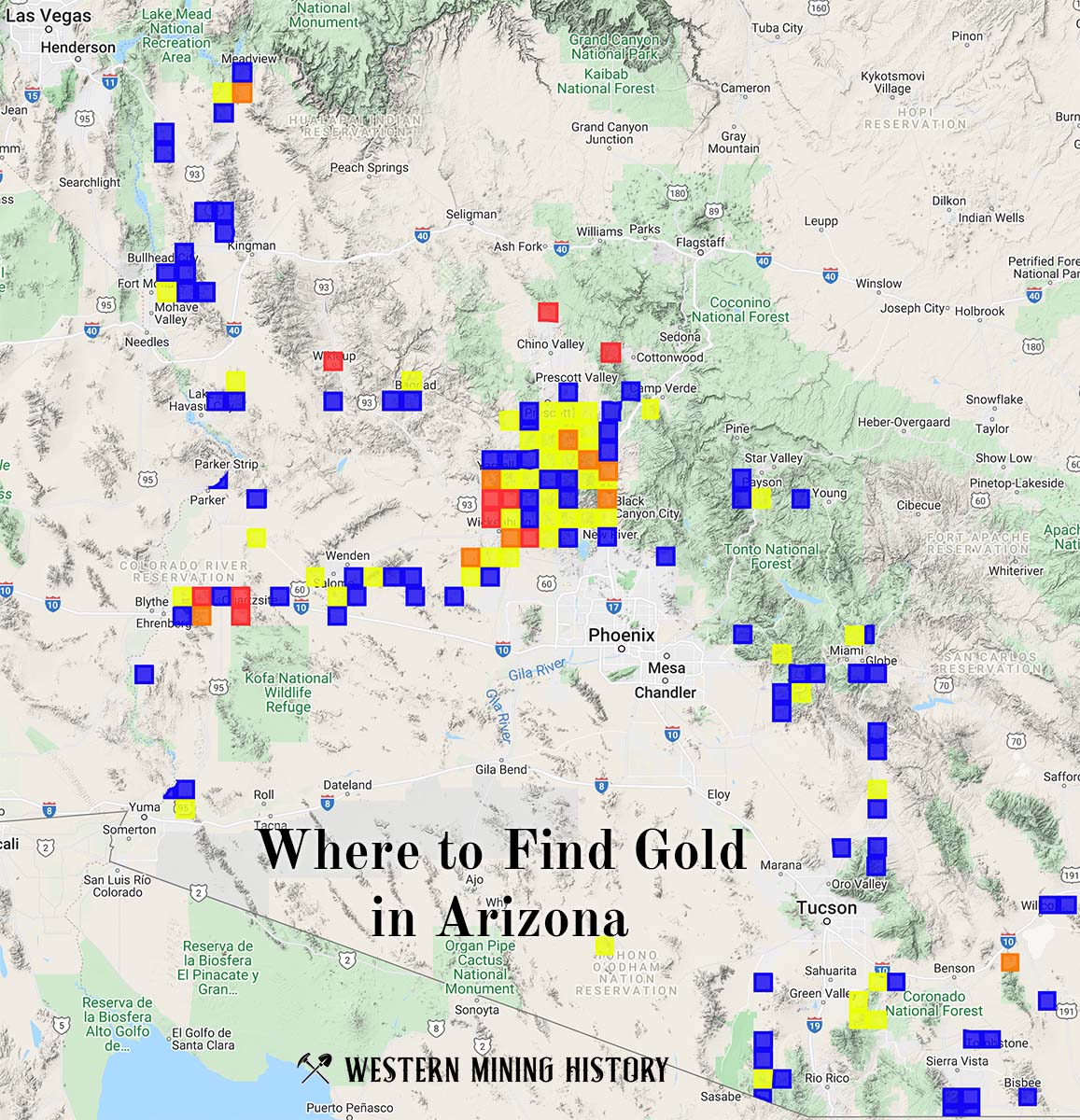The Whitehouse Group is a magnesite mine located in Mohave county, Arizona.
About the MRDS Data:
All mine locations were obtained from the USGS Mineral Resources Data System. The locations and other information in this database have not been verified for accuracy. It should be assumed that all mines are on private property.
Mine Info
Whitehouse Group MRDS details
Site Name
Primary: Whitehouse Group
Secondary: Martin Claims
Secondary: Whitehouse Claims
Commodity
Primary: Magnesite
Location
State: Arizona
County: Mohave
District: Oatman District
Land Status
Not available
Holdings
Not available
Workings
Not available
Ownership
Not available
Production
Not available
Deposit
Record Type: Site
Operation Category: Past Producer
Operation Type: Unknown
Discovery Year: 1943
Years of Production:
Organization:
Significant: N
Physiography
General Physiographic Area: Intermontane Plateaus
Physiographic Province: Basin And Range Province
Physiographic Section: Mexican Highland
Mineral Deposit Model
Not available
Orebody
Not available
Structure
Not available
Alterations
Not available
Rocks
Name: Rhyolite
Role: Host
Age Type: Host Rock
Age Young: Pliocene
Analytical Data
Not available
Materials
Ore: Magnesite
Ore: Serpentine
Ore: Brucite
Gangue: Calcite
Gangue: Dolomite
Comments
Comment (Geology): THE BLACK MOUNTAINS ARE IN A TILTED FAULT BLOCK IN WHICH THE VOLCANIC ROCKS STRIKE NORTHWARD AND DIP EASTWARD. AT OATMAN, THE VOLCANIC ROCKS DIP ABOUT 12 DEGREES EAST BUT TO THE WEST THEY DIP MORE STEEPLY.
Comment (Deposit): THE BRUCITE DEPOSITS ARE LAYERS AS MUCH AS 30 FT THICK RESTING ON THE ALCYONE TRACHYTE, THE OLDEST UNIT OF THE MID-UPPER TERTIARY VOLCANIC ROCK SEQUENCE. THE DEPOSITS ARE GENERALLY OVERLAIN BY OATMAN ANDESITE BUT AT SEVERAL PLACES THE BRUCITE LAYERS APPEAR TO BE WITHIN THE ANDESITE. SOME LAYERS AS MUCH AS 4-5 FT THICK BUT MOSTLY THINLY LAMINATED MATERIAL OF ALTERNATING BANDS OF CONTRASTING SHADES OF GREEN, GRAY, YELLOW, AND WHITE. FRESH BRUCITE RANGES FROM SERPENTINE GREEN TO LIGHT GRAY TO ALMOST WHITE. THE BRUCITE IS CRYPTOCRYSTALLINE AND DENSE WITH SUBCONCHOIDAL FRACTURE.
Comment (Development): DIAMOND DRILLED IN THE 1940'S. ; ECON.COM: DEPOSITS ARE TOO SMALL AND TOO LOW GRADE TO BE MINED PROFITABLY.
References
Reference (Deposit): GALBRAITH, F.W., 1947, MINERALS OF ARIZONA: ABM BULLETIN NO. 153, P. 48.
Reference (Deposit): ERICKSEN, G.E., 1969, "BRUCITE AND MAGNESITE", IN ABM BULLETIN 180, USGS BULLETIN 871, P. 320-324.
Reference (Deposit): PEIRCE, H.W., 1990, ARIZONA GEOLOGICAL SURVEY INDUSTRIAL MINERALS CARD FILE.
Reference (Deposit): PHILLIPS, K.A., 1987, ARIZONA INDUSTRIAL MINERALS: ARIZONA DEPARTMENT OF MINES AND MINERAL RESOURCES MINERAL REPORT 4, 185 P.
Reference (Other Database): CIMRI
Arizona Gold

"Where to Find Gold in Arizona" looks at the density of modern placer mining claims along with historical gold mining locations and mining district descriptions to determine areas of high gold discovery potential in Arizona. Read more: Where to Find Gold in Arizona.